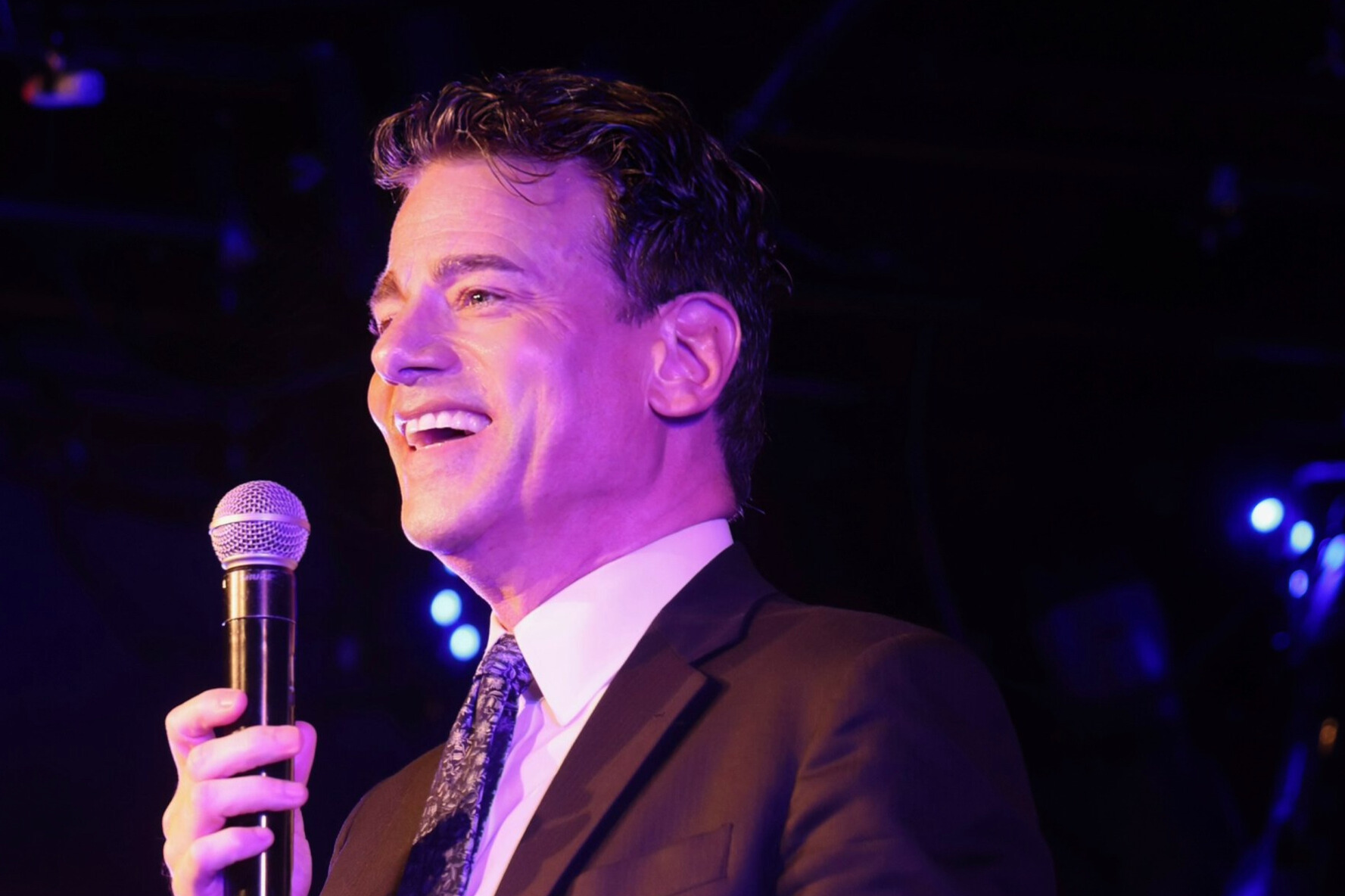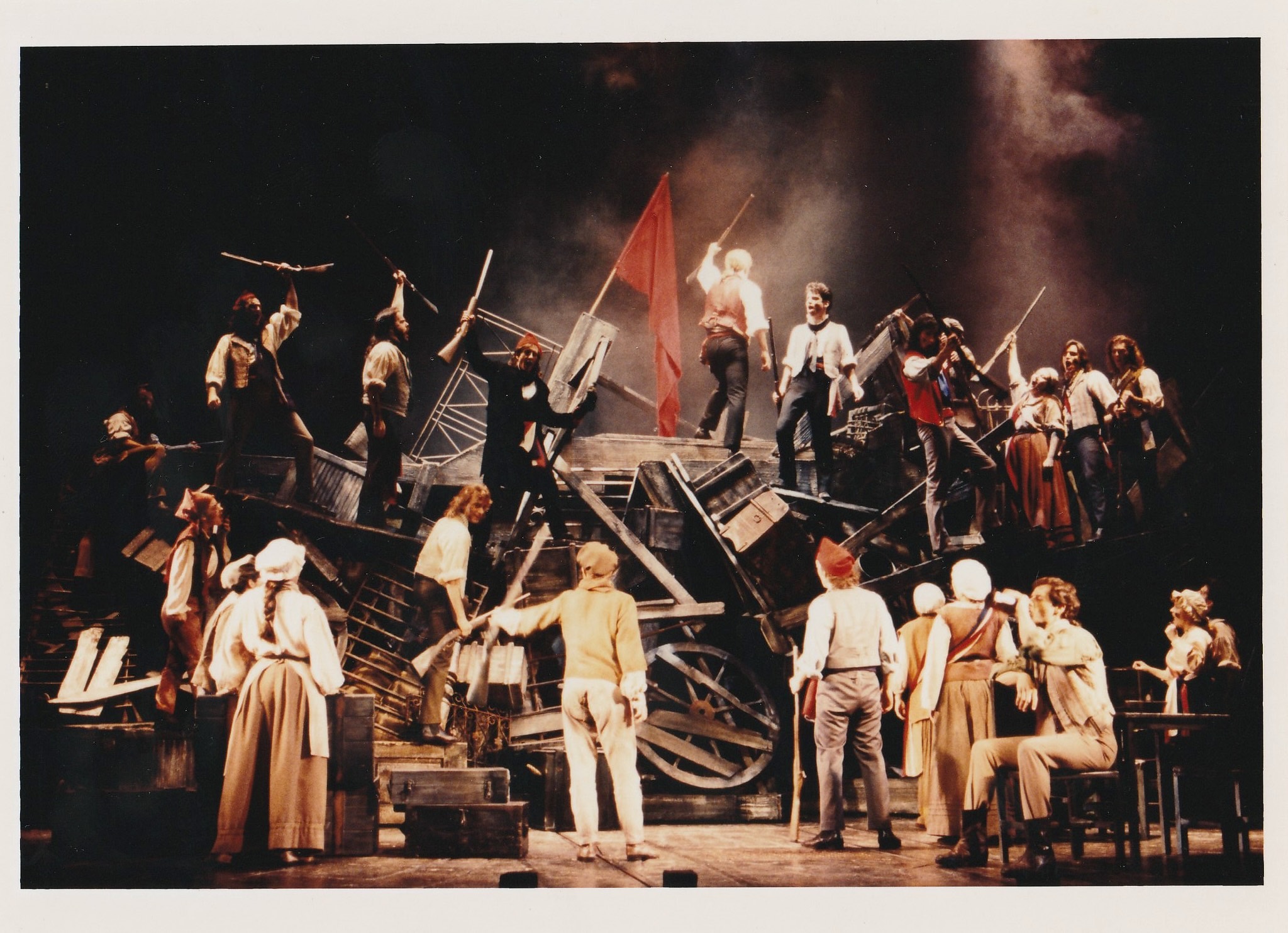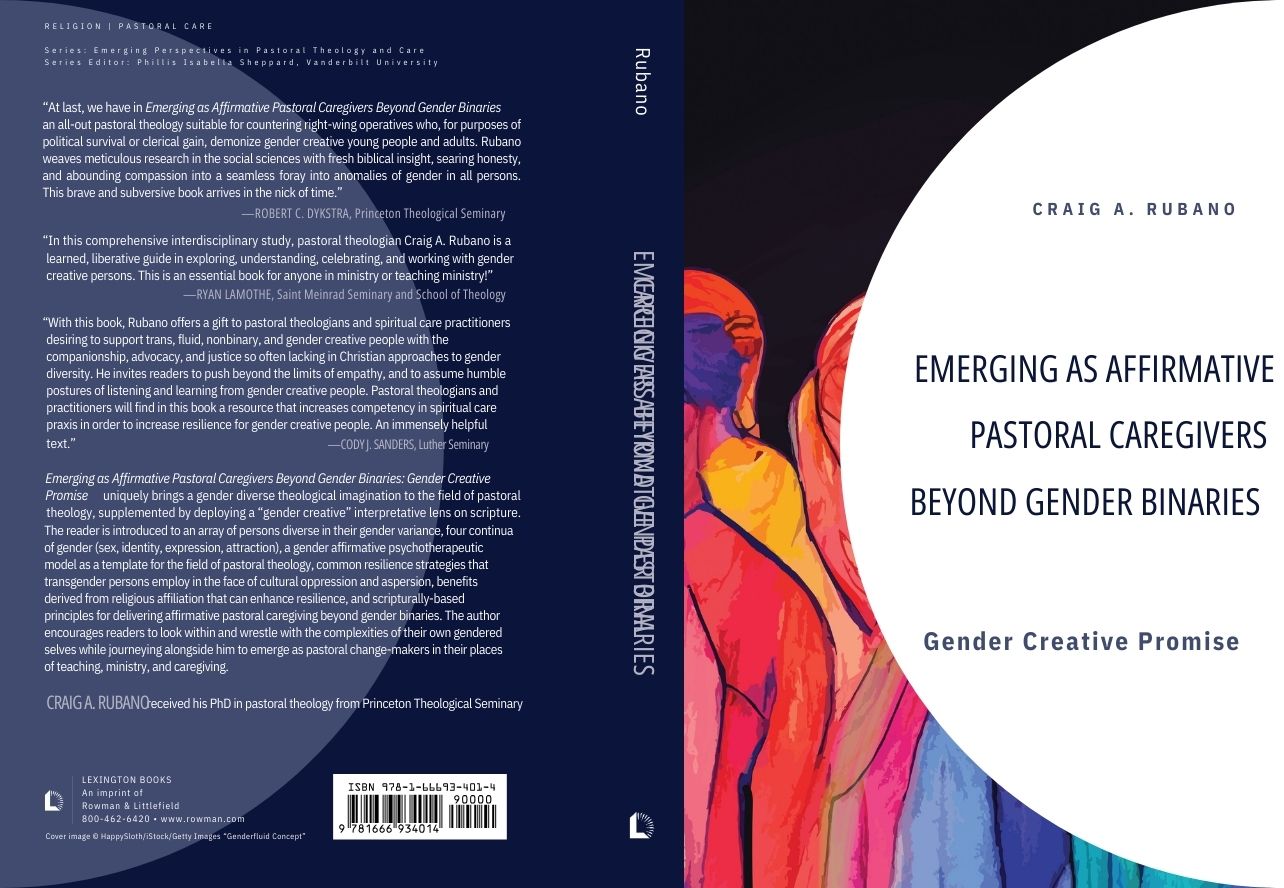From Broadway to Pastoral Care
July 5, 2024 | Alumni, Featured, Ministry, Music & Art, Preaching, Public

Craig at the Laurie Beechman Theatre. (Gene Reed, photo)
On Sept. 11, 2001, a Broadway performer stood on a rooftop staring toward where the World Trade Center towers had just collapsed.
“Just watching these buildings that were the touchstone—your compass—fall down; I still can’t . . .,” recalled Craig Rubano, his voice trailing off. “I’ve never gone to the site. Never gone to the museum. I don’t like watching anything about it. I don’t like to go there.”
That day was a turning point for Rubano, who had made his Broadway debut in the 1990s in Les Misérables and was ascendant as an actor, singer, and solo artist.
In the years that followed, he began heading in a new direction. Haunted by the 9/11 attacks and the growing polarization, he enrolled in Princeton Theological Seminary where he earned multiple degrees and pursued in-depth study of pastoral care and interfaith dialogue.
“I can remember on 9/11 feeling like, ‘Really? Are our religious differences so profound that it ends in something like this?’” Rubano said. “I realized I just wanted to be in some kind of conversation with people to try to heal these kinds of wounds, to try to bridge these kinds of differences.”
Today, Rubano, MDiv ’11, ThM ’12, PhD ’19, is a solo minister at the Unitarian Universalist Congregation of Monmouth County. The 300-member congregation in New Jersey has a strong social justice ethic and a membership that proudly describes itself as “deists, theists, pantheists, atheists, agnostics, humanists, and earth-centered believers to name a few.”
The congregation’s spirit of radical openness and hospitality reflects some of Rubano’s own deepest impulses and fondest life experiences.
He was five years old when his educator parents moved the family from St. Louis to Argentina to work at an international school in Buenos Aires. Rubano and his sister attended the school, growing up in an atmosphere of remarkable diversity with classmates from around the world.
“It was multicultural, multilingual, with every religious faith you could think of, all co-existing, all getting along,” he said. “Two of my best friends were the daughter of the Israeli ambassador and the son of the Saudi Arabia ambassador.
“So, I was always interested in that kind of interfaith cooperation and how to speak across divides.”
Rubano returned to the United States for college, earning his bachelor’s degree at Yale University and his master’s at Columbia University, focusing on literature and philosophy. At Yale, he began singing a cappella, joining the university’s venerable singing groups. During a 1990 performance at the Riverside Church to honor the recently freed Nelson Mandela, a choir member approached Rubano, complimenting his singing and offering some life-changing advice: Pursue a career in the performing arts.
“I never had a voice lesson. I never had an acting lesson.” Rubano said. “It was a little foolish. But you can be young and be foolish.”

It turned out to be far from foolish. Within a few years, Rubano racked up numerous successes as an actor and singer. He was an original cast member of the Tony and Grammy Award-nominated The Scarlet Pimpernel; starred in The Picture of Dorian Gray, and recorded several albums as a solo artist, including his debut, Finishing the Act: Act One Finales from Broadway, which won Recording of the Year from the Manhattan Association of Clubs.
After 9/11, his singing career blossomed, leading him to travel extensively. He knew he was delighting audiences, yet he found himself wanting deeper connections. Always at home with his Episcopalian upbringing and faith, he started checking out seminaries. And, among the seminaries he visited, Princeton Seminary stood out. “There was a profound sense of welcome,” he said.
Although he wasn’t yet certain of his exact calling, he saw a path in some form of ministry.
“Chaplaincy was very up my alley,” he said, noting his Seminary experiences making hospital rounds. “You turn the corner and walk into a room, and you don’t know who is going to be there or what their faith tradition is. Yet you have to be ready to be present and to listen deeply. People need an ear to put their life together as they speak.”
He was also drawn to the Unitarian Universalist movement with its shared covenant supporting the free and responsible search for truth and meaning, the emphasis on cooperation among people of all and no faiths, and the strong social justice tradition.
It was during his Seminary years that he became acquainted with the Unitarian congregation in Monmouth County, serving first as an intern, then as co-minister. Now the solo minister, Rubano feels fulfilled in the role. He is able to draw upon his gift of self-expression, his passion for connecting with diverse groups of people, and his love of literature and storytelling including his latest book Emerging as Affirmative Pastoral Caregivers Beyond Gender Binaries.

In one recent column to the congregation, for example, he used the words of poets Mary Oliver and Diane Ackerman and activist Adrienne Maree Brown to reflect on the adult need for play and pleasure.
I see pastoral care as care for souls,” he said. “It is helping people connect to something larger than themselves so that they might live abundantly in their own authenticity. So that is my through line: Living authentic lives
This year, Rubano returned to New York City supper clubs to tell the story of his own authentic life. In a widely acclaimed one-man show, Take the Moment, he relayed his story through classic Broadway songs.
One review, headlined “His Music is His Ministry,” described Rubano taking the stage with “the reverence of a cleric approaching the altar for a solemn high mass.”
Before the show opened in Manhattan, Rubano performed it in an actual house of worship: his own, with all the proceeds donated to the congregation.
“The message of the concert is a spiritual one: that we need to take the moments as they come in order to live our lives as authentically and fully as we can,” he said. “And that we do so in community, with friends and loved ones.”





